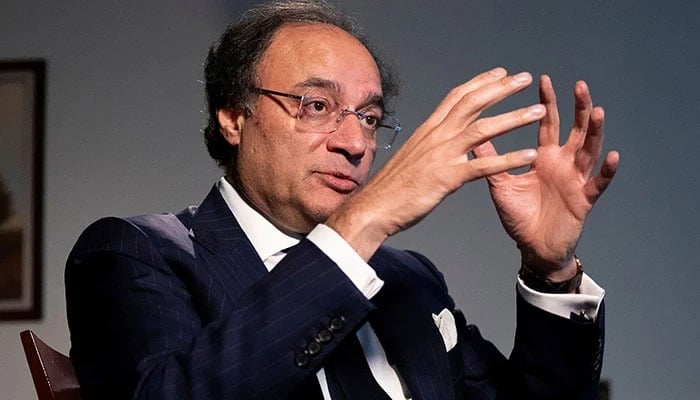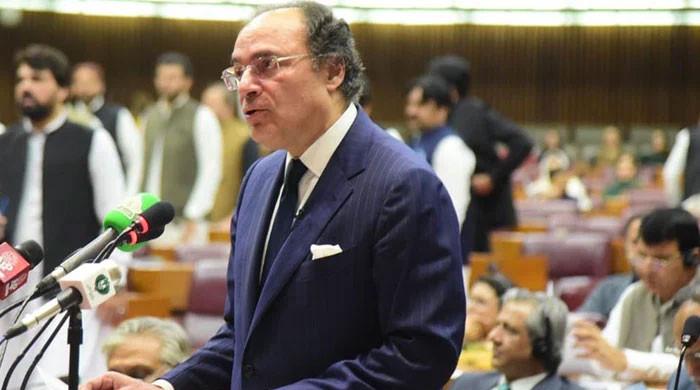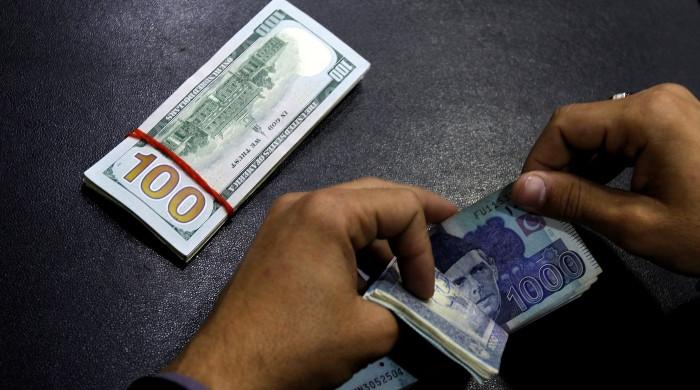Finance minister hopeful of securing $7bn IMF deal today
Aurangzeb says Pakistan needs to pursue reform agenda in taxation, energy sector, privatisation under IMF programme
September 24, 2024

- IMF board scheduled to meet today to decide SBA fate.
- Finance czar says Pakistan committed to doing structural reforms.
- Says rupee, forex reserves stable, with two months of import cover.
Finance Minister, Senator Muhammad Aurangzeb, voiced confidence on Tuesday that the International Monetary Fund’s board will greenlight a $7 billion, 37-month Extended Fund Facility (EFF), at its meeting today.
“Pakistan successfully concluded a 9-month SBA (Stand-by Arrangement) with IMF and we have its board meeting on Wednesday here in the US. We are very hopeful the board would approve the 37-month 7 billion Dollars programme,” he said speaking at “High Level Private Sector Dialogue – CPEC-II and the Region” virtually through Zoom.
The event was organised by the Pakistan Regional Economic Forum.
Pakistan and the IMF reached an agreement on a loan programme in July. The IMF said the programme was subject to approval from its executive board and obtaining "timely confirmation of necessary financing assurances from Pakistan's development and bilateral partners".
The finance czar said Pakistan was committed to structural reforms under the programme, and it needed to pursue the reform agenda, whether in taxation, the energy sector, state-owned enterprises, or privatisation.
“We will stay on course,” he resolved.
Earlier this month, finance minister vowed to persevere with plans for new taxes on the retail sector despite strike threats, as a step towards winning approval from the board of the IMF for a $7-billion loan.
"One thing I want to be very clear (about) ... This is not going to be taken back," Aurangzeb said in a televised speech urging wholesalers, distributors and retailers to contribute to the economy.
The taxes, in line with ambitious revenue targets adopted to clinch a staff-level deal on the 37-month programme, face public backlash after they were introduced in the June budget.
Speaking at the CPEC dialgogue, Aurangzeb expressed gratitude to China for its support of the fund programme as the country’s lone standing partner.
Pakistan’s economic improvement, which started in the last fiscal year, continued into the first quarter of this fiscal year, with notable developments in various economic indicators, according to the minister.
He said the currency and foreign exchange reserves were stable, with two months of import cover, while inflation had decelerated, leading to a reduction in policy rates and eventually KIBOR, to the benefit of the industry.
Aurangzeb said the government had recently rejected Treasury Bills (T-bills) and Pakistan Investment Bonds (PIBs), saying the decision aimed to convey a clear message that the government was no longer desperate to borrow domestically.
"If required, the government will borrow domestically on its own terms, signalling the banking sector to lend to the private sector," he said.
However, he said investment inflows in terms of debt and equity were welcome, as they would bring foreign direct investment (FDI) into the country.
Attaching great importance to macroeconomic stability, the finance minister said a foundation had been laid to promote economic stability.
"The China-Pakistan Economic Corridor Phase II is now underway, building on the infrastructure development of Phase I," Aurangzeb said.
The minister explained that the Phase I focused on establishing corridors and investing in roads, ports, and energy. "However, the next step is monetising this infrastructure and although momentum was missed, it is not too late to move forward."
“This initiative, dubbed the new silk roads, aims to attract investment partners worldwide. The private sector will drive growth, with the government providing a supportive policy framework.”
Moreover, the minister urged Saudi Pak and Pak-China Development Financial Institutions (DFIs) to facilitate cross-border investments and corridor development between Pakistan and its brotherly countries.
He encouraged them to capitalise on this opportunity, becoming catalysts for business growth and bilateral investment, and serving as levers through which business can be taken forward.











